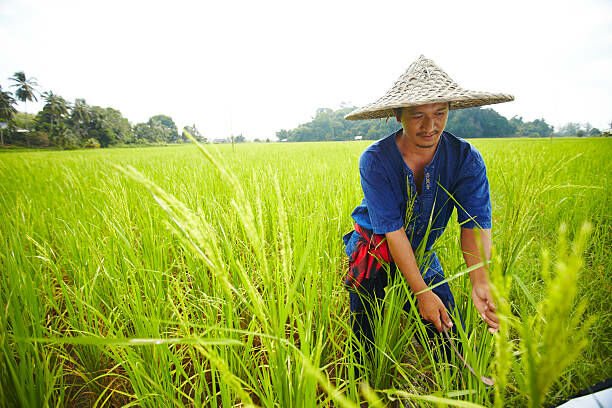Thai ministry propels rice trade growth with G2G agreements

The Ministry of Commerce in Thailand is set to discuss the potential sale of a massive 1 million tonnes of rice to Indonesia tomorrow, under a government-to-government (G2G) agreement. This comes with a commitment to further engage in similar discussions about rice sales with China.
Commerce Minister Phumtham Wechayachai revealed that the head of the Foreign Trade Department has been assigned to lead a team in the negotiation of this augmentation of rice trade via G2G contracts with Indonesia. This follows the approval by the National Rice Policy Committee.
Previously, Prime Minister Srettha Thavisin noted at the Japan-ASEAN summit that Indonesia had shown interest in purchasing 2 million tonnes of rice from Thailand, half of which would be through G2G arrangements and the other half via private negotiations.
Phumtham expressed concern about public perception of these deals.
“We are worried people will cling to old perceptions. We don’t want this to be seen as the old G2G format, but rather the government is taking the lead while the private sector follows.”
In a change from the traditional model, the government will no longer directly sell rice to potential buyers at low prices. Instead, it will function as a guarantor, ensuring that delivery is guaranteed if G2G deals are adopted. The government will handle negotiations, while the private sector provides support.
Alongside the proposed deal with Indonesia, the ministry is also awaiting the outcome of an additional 280,000 tonnes of rice G2G delivery period extension with Cofco Corporation, a Chinese state-owned organisation active in the production and import of agricultural products.
Moreover, a delegation is expected to negotiate an expansion of the rice market in the US from January 17 to January 22 in Los Angeles. There are also plans to negotiate with other regions, including Saudi Arabia, Africa and Iran, according to Phumtham.
Data from the Customs Department reveals that in the first 11 months of 2023, Thailand exported 7.95 million tonnes of rice, worth 160 billion baht (US$4.61 billion). This represents a 14.7% increase in volume and a 28.9% increase in value year-on-year, reported Bangkok Post.
Breaking down the total rice exports, white rice accounted for 4.47 million tonnes (a 31% increase), parboiled rice was 1.32 million tonnes (a decrease of 0.9%), Thai hom mali fragrant rice was 1.44 million tonnes (an increase of 0.6%), Thai fragrant rice increased by 9.3% to 474,806 tonnes, and glutinous rice decreased by 25% to 227,012 tonnes.
The largest importer was Indonesia with 1.27 million tonnes (a 2,145% surge), followed by Africa with 876,184 tonnes (an increase of 26.6%), Iraq with 814,805 tonnes (a 44.2% gain), the US with 648,946 tonnes (an 8.9% increase), and China with 367,204 tonnes (a decrease of 44%).
The Thai Rice Exporters Association predicts that Thailand will export 7.5 million tonnes this year as India may lift its export ban in the second half of the year. Last year, rice exports likely totalled 8.8-8.9 million tonnes, exceeding the forecast of 8.5 million tonnes, valued at 180 billion baht (US$5 billion) as prices rose, according to the association. Read more about the Indian export ban boosts Thai rice optimism.
Latest Thailand News
Follow The Thaiger on Google News:


























